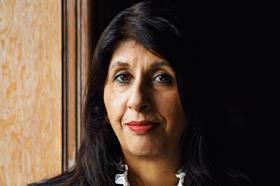The last few decades have seen a proliferation of options for international businesses, governments and individuals seeking to resolve a cross-border dispute. International contracts can and usually do specify how and where any disputes will be resolved – in the commercial courts of a designated jurisdiction or through arbitration. Arbitration is becoming increasingly popular. Although it is usually more expensive than litigation, it can be easier to enforce internationally.

London’s Commercial Courts (LCC) are well-established and widely respected. Competitor international commercial courts have opened around the world – first in Asia, the Middle East and more recently in Europe – driven by an expectation that Brexit would diminish the attractiveness of London.
Despite the competition, LCC continue to hold their preeminent position for the settlement of international commercial disputes. Portland’s 2023 Commercial Courts Report calculated 60% of the 1,120 litigants to appear before the LCC from April 2022 – March 2023 were not from the UK. This is the highest recorded proportion and total number of international litigants to use the London courts in a single year. It was also a record year for the diversity in nationalities of litigants, which hailed from 78 countries.
Portland reports that 15.3% of total litigants were from the EU, the highest proportion since 2018. This is despite the establishment in recent years of a number of alternative international courts in EU jurisdictions, including France, Germany and the Netherlands.
There was a 98% increase in litigants from Africa over the same period. Available data shows Nigerian litigants increased 10-fold from last year, with 21 litigants in six judgments. There were 10 litigants from Liberia and six from Mozambique.
There was also a record number of litigants from India (44 litigants) and Singapore (35 litigants). These two countries represented the fourth and fifth largest numbers of litigants by nationality, after the UK, Russia, and the United States.
Notably the number of Singaporean litigants in LCC went up from 11 to 35 year on year, while the number of litigants appearing at the Singapore International Court in 2022-23 declined by 32%.
Despite a record year for international litigation at LCC, the UK should not be complacent about the need to retain its edge over emerging international commercial courts. The government should continue to invest in efficiencies to ensure that the infrastructure and procedures at LCC remain the best in the world.
Options for international arbitration have also expanded in recent years. There is often strong support from local governments hoping to drive growth of the local legal services sector, build international business opportunities for local lawyers and firms and derive economic benefits for associated technical experts and support staff.
But in this area too London remains highly attractive, with a number of stand-out specialist centres for international arbitration. Of the 28,000 commercial and civil disputes resolved through arbitration, mediation and adjudication in the UK in 2021, more than 4,000 were mostly international.
The London Maritime Arbitrators Association (LMAA), the primary forum of choice for dispute resolution in ships and shipping, is by far the most active arbitral body in the world, with over 1,600 cases in 2021. By LegalUK’s calculations, the LMAA accounted for more than 43% of the total new arbitration cases in 2021 across six leading arbitral bodies from around the world (LMAA, International Chamber of Commerce, Singapore International Arbitration Centre, London Court for International Arbitration, Hong Kong International Arbitration Centre and the Stockholm Arbitration Institute).
The Grain and Feed Trade Association (GAFTA), also based in London, is another major contributor to London’s position as the global centre for international arbitration. 80% of global trade in grains is traded under GAFTA contracts, worth at least $98.2 billion. On average GAFTA carries out around 800 arbitrations per year.
London and Paris vie for first place when it comes to International Chamber of Commerce (ICC) arbitrations. In 2021 Paris just edged out London with 87 cases compared to 85, while the previous year London led with 114 cases to 106 in Paris.
The London Court of International Arbitration (LCIA) is another world leading international institution for commercial dispute resolution. In 2021, LCIA received 387 referrals for its services. This is up from 265 ten years ago. 85% of parties in arbitrations administered pursuant to the LCIA Rules came from countries other than the United Kingdom.
The Queen Mary University International Arbitration Survey 2021 asked respondents what their five preferred seats of arbitration were. More than 90 different seats from a range of jurisdictions were cited. London was tied in first place with Singapore, appearing in 54% of responses.
Leading global practitioners and experts across all dispute resolution sectors and specialisms are this week sharing their knowledge and experience at London International Disputes Week from 15 - 19 May. The enduring attraction of this event and the quality of debate underlines London’s pre-eminence as a centre for international dispute resolution — in discourse and innovation, international litigation and arbitration.
Lubna Shuja is president of the Law Society of England and Wales































2 Readers' comments